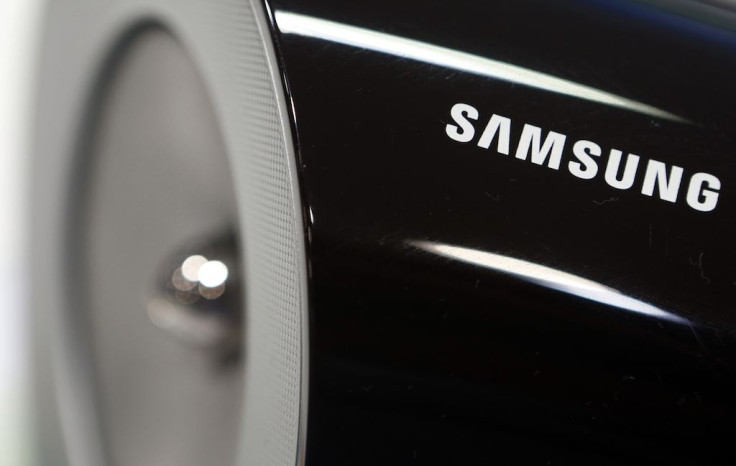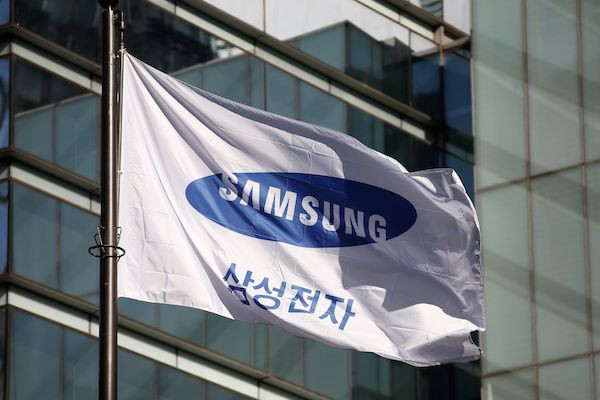Samsung Confirms Work On Smart Home Speaker To Rival Amazon Echo

The smart home speaker market has seen a lot of competition within the past few years and the latest entrant will be a familiar name to smartphone users. Samsung mobile division president DJ Koh confirmed that the company is working on its own smart home speaker.
Koh told CNBC Samsung has been in development on the speaker and that it will likely be formally announced “soon.”
"As I mentioned I wanted to provide a fruitful user experience at home with Samsung devices, and I want to be moving quite heavily on it," Koh said.
For observers, it’s not the first time that Samsung has been tied to rumored development on its own smart speaker. Earlier this summer, speculation emerged that the speaker was being worked on — the Wall Street Journal reported that the speaker had a codename of “Vega” — but it was uncertain if it would reach consumers.
Development on the Vega speaker was reportedly held up by delays in Samsung’s proprietary Bixby virtual assistant, which is expected to power the device. Issues for Bixby included the difficulty translating Bixby into languages besides English and the program’s lack of accumulated user experience compared to older assistant programs like Amazon’s Alexa and Google Assistant. While Bixby suffered a delayed rollout and only formally launched earlier this summer, the assistant is slated to roll out globally soon.

Samsung also reportedly expressed concerns over its ability to make a dent in the home speaker market, thanks to this late start and strong products from other competitors.
“Samsung currently does not view artificial intelligence speakers as marketable, as the global market is already dominated by unbeatable Amazon and the Korean market is too small to make profits,” an anonymous source told The Korea Herald. “More importantly, Samsung cannot afford to focus on the uncertain market, as most of its AI specialists -- whose number is much less than that of the US tech giants -- are currently going all out to develop the Bixby version in English.”
The Vega speaker has yet to get a set release date, but with companies and consumers becoming increasingly familiar with smart home technology, Samsung likely wants to get a presence within this growing market. A recent survey from Adobe estimated that home speakers will be connected to more than 3.3 million devices this year and also found that an increasing number of users are purchasing smart speakers for their homes.
With smart home tech and the Internet of Things, users can perform tasks like controlling lights or their home TVs. On the home appliance side, Samsung has a substantial number of devices for sale that feature smart home functionality and also has its own SmartThings standard for networked local connectivity among products.
For consumers, Samsung is no stranger to launching proprietary services or products that cover similar territory to competitors and the Vega falls into a similar mold. While Bixby’s rough rollout could be a potential hurdle for the Vega, Samsung is likely banking on its sizable install base among smartphone — and by extension, Bixby — users to help the speaker catch up to competitors.
But at the same time, Samsung’s Vega would be a significantly late arrival to the speaker market. Amazon’s Echo series of smart home speakers remain the high standard among consumers thanks to their broad price points and Alexa support. Echo devices range from budget mini speakers to the touchscreen-featuring Show and thanks to Amazon’s developer-friendly platform, Alexa has been adapted for tasks ranging from party games to controlling your home theater.
The Echo hasn’t gone completely unchallenged, as current competitors include the Google Home, which showcases the search giant’s Assistant program. Upcoming products include models from Microsoft and Harman Kardon that feature its Cortana virtual assistant and the Siri-powered Apple HomePod.
© Copyright IBTimes 2024. All rights reserved.





















